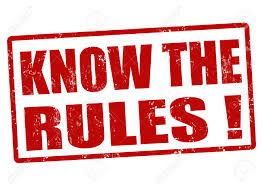In the book Achieve Sales Excellence Howard Stevens developed the seven rules of the customer from conducting 80,000 customer interviews over 14 years. This research also included 7,500 sales reps. Neil Rackham’s research with Xerox, IBM, and other companies with over 1500 sales transactions, agrees with Steven’s research. From my own anecdotal experience: (Being a right brain thinker, I am not the analytical type who does such research), they are right on the money. And, if you learn and apply these 7 rules in your sales processes, you will succeed. I will cover the 7 rules briefly.
To truly understand and apply the full meaning and impact of these rules, I highly recommend studying Achieve Sales Excellence. (I have read the book 17 times!) If you are a senior leader, the last section of Steven’s book asks eight questions for identifying world class sales organizations. These are some direct and tough questions, but ones that should be addressed. Your analysis will help you assess whether you are in the 20th, or 21st century; in terms of your sales strategy and processes.
The 7 rules of the Customer are:
- You must be personally accountable for our results
- You must understand our business
- You must be on our side
- You must bring us applications – not just products
- You must be easily accessible
- You must solve our problems
- You must be innovative in responding to our needs

Rule #1” You must be personally accountable for our results.”
Sales people who understand Customer Aligned Selling take personal responsibility for the customer’s results. These reps’ foremost concern is that the customer achieves the best solutions, i.e. the results that they expected and paid for. These reps act as business agents, or as outsourced managers who are responsible for all aspects of the relationship with the buyer. They act as the single point of contact within their organization, to ensure the buyer receives the right resources and communication. They may delegate some activities, but not responsibility. They are responsible for the client’s outcome, (outcome ownership), and the client knows it. Client ownership is the path to achieving Raving Fan status.
Rule #2 “You must understand our business.”
In order to personally manage the relationship, a sales rep must truly understand the customer’s business. This involves not only understanding the customer, their organization, culture, competencies, and business strategy but also their industry, financial and economic pressures, industry trends, and even competition. “It means seeing the customer’s business as its CEO sees the business.”
Rule # 3 “You must be on our side.”
To truly serve your customer, you must see things from their perspective, and then represent your customer’s point of view back to your company. Your job is to make sure that in your company’s quest for profit and efficiency, your customer’s perspective is not forgotten. You keep your company from alienating your customer. In understanding your customer’s perspective, you must be aware that their perspective is the only one that matters to them. You must also be aware of vested interests in your company that do not benefit the customer, and work around them. Lastly, your advocacy for your customer is most valid when your customer is not present. You must represent them at all times.
Rule #4 “You must bring us applications”
Customers want substantiated value at every step of the sales process. Substantiated value does not mean presenting features and benefits and hoping that the buyer understands how they will help them. Bringing applications means the sales rep can discuss the product’s usage, outcomes, or results of using that product. Your customer wants to know how your offering applies to their particular need, and how it can be implemented to produce the desired results. The sales rep’s skill must be in creating a match between the seller’s offerings and the buyer’s situation thus bringing them applications.
Rule #5 “You must be easily accessible”
The average sales person spends a small amount of time in actual contact with customers. In several studies, actual direct time with customers was less than 25%, and that included problem-solving. In today’s world, every company should have a defined process for keeping in touch with the customer, from automated email responses and 24-hour call back rule, to problem escalation and communication rules, to even texting. The key for the customer is the level and quality of response. Good communication is key. What causes stress for a customer is a sense of being out of control and not having the right information to regain control.
Rule #6 “You must solve our problems”
What makes great sales people is that their anticipation of problems, and their solutions. These problems can be caused by their company, by the customer, or by some other factor. Great sales reps have the mindset of a troubleshooter. They equip themselves to deal with problems in advance. They see problem solving as a positive challenge and a valuable opportunity: R+ opportunities. The sales person remains personally responsible for the resolution; they do not delegate the final responsibility to someone else.
Rule #7 “You must be innovative to responding to our needs”
Customers want their supplier or service provider to be continuously improving the offering throughout the relationship. Executives want salespeople who can keep them up to date on innovative new solutions that addresses strategic challenges, and provides new opportunities for improving their company’s sales, reducing costs, or growing the company profits. Executives want salespeople to be up to date and ongoing learners. They want to insure there is added value in a relationship, and not just what the sales rep’s company offers at that moment. This requires sales reps to understand the industry, to be subject matter experts, to understand the customer’s competition, and to search for innovative ideas in other industries. Innovation comes from extensive reading, and from having a broad network of contacts in different industries.
CONCLUSION:
Customer Aligned Selling is based upon the principal that the customer demands that you follow their rules. If you follow their rules, you will win more than your fair share of deals.

